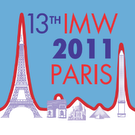Articles tagged with: Maintenance Therapy
News»

The 13th International Myeloma Workshop will take place Tuesday, May 3, through Friday, May 6, in Paris. During the four-day meeting, multiple myeloma specialists from all over the world will discuss the current understanding of the biology and treatment of myeloma.
Additionally, much awaited data about the safety and effectiveness of Revlimid (lenalidomide) maintenance therapy will be presented at the meeting.
The Myeloma Beacon will be covering the event, so readers can expect many articles during the meeting and in the weeks afterward about the key myeloma findings.
The International Myeloma …
News»

The U.S. Food and Drug Administration (FDA) announced last week that it is investigating the safety of the multiple myeloma drugs Revlimid and thalidomide. The Beacon covered this development in an earlier article. More details are provided here about why the FDA is conducting the investigation and the possible outcomes of that investigation. These questions and answers have been developed in consultation with the FDA.
Why is the FDA investigating the safety of Revlimid and thalidomide?
In December, intermediate results from three clinical trials studying long-term use of Revlimid …
News»

The U.S. Food and Drug Administration (FDA) earlier today issued a formal announcement that it is investigating the safety of the multiple myeloma treatments Revlimid and thalidomide.
The investigation is being carried out due to clinical trial results that suggest Revlimid may increase the risk of secondary cancer in patients taking the drug for extended periods of time.
The announcement confirms a Beacon news update last week that reported evidence that an investigation of Revlimid was underway (see related Beacon news).
Today's FDA statement says that the agency is "aware of results from clinical trials ... that have found that patients treated with
News»

There have been several additional developments in the past few weeks related to concerns about a potential link between Revlimid and secondary cancers.
A group of myeloma researchers issued a joint statement on the issue; the European Medicines Agency has begun an investigation into Revlimid’s risks and benefits; and there are subtle signs – but no official confirmation – that the U.S. Food and Drug Administration may be conducting its own investigation into Revlimid and its safety.
As the Beacon announced last week, a group of myeloma researchers has issued a statement …
News»
A group of mainly European multiple myeloma researchers has issued a statement regarding the potential link between Revlimid and secondary cancer.
According to the statement, the group initially met in Paris on February 23, 2011 at a meeting arranged by Celgene, the company that developed and markets Revlimid (lenalidomide).
The group includes 12 well-known multiple myeloma researchers, almost entirely from Europe. Among the group's members are investigators from the CALGB 100104, IFM 2005-02, and MM-015 clinical trials, which are the three trials that last December reported data suggesting a possible connection between …
News»

Multiple myeloma patients participating in the international MM-015 study will continue to receive Revlimid maintenance treatment, despite concern that there might be a link between such treatment and a higher risk of developing second cancers. Celgene, the manufacturer of Revlimid, confirmed yesterday that no changes are currently planned for the trial protocol.
In a statement provided to The Myeloma Beacon, Dr. Antonio Palumbo, chief of the Myeloma Unit at the University of Torino in Italy and lead investigator of the MM-015 study, suggested that the benefits of Revlimid (lenalidomide) maintenance therapy …
News»

Dr. Kenneth Anderson is a multiple myeloma thought leader, physician and researcher at Dana-Farber Cancer Institute, where he is Director of the Jerome Lipper Multiple Myeloma Center. He also is the Kraft Family Professor of Medicine at Harvard Medical School in Boston.
Dr. Anderson's research has played a key role in the development of several new multiple myeloma drugs and, more broadly, the significant improvement in treatment outcomes for myeloma patients that has occurred over the past 10 to 15 years.
In an interview with The Myeloma Beacon, Dr. Anderson spoke about his approach to treating …
